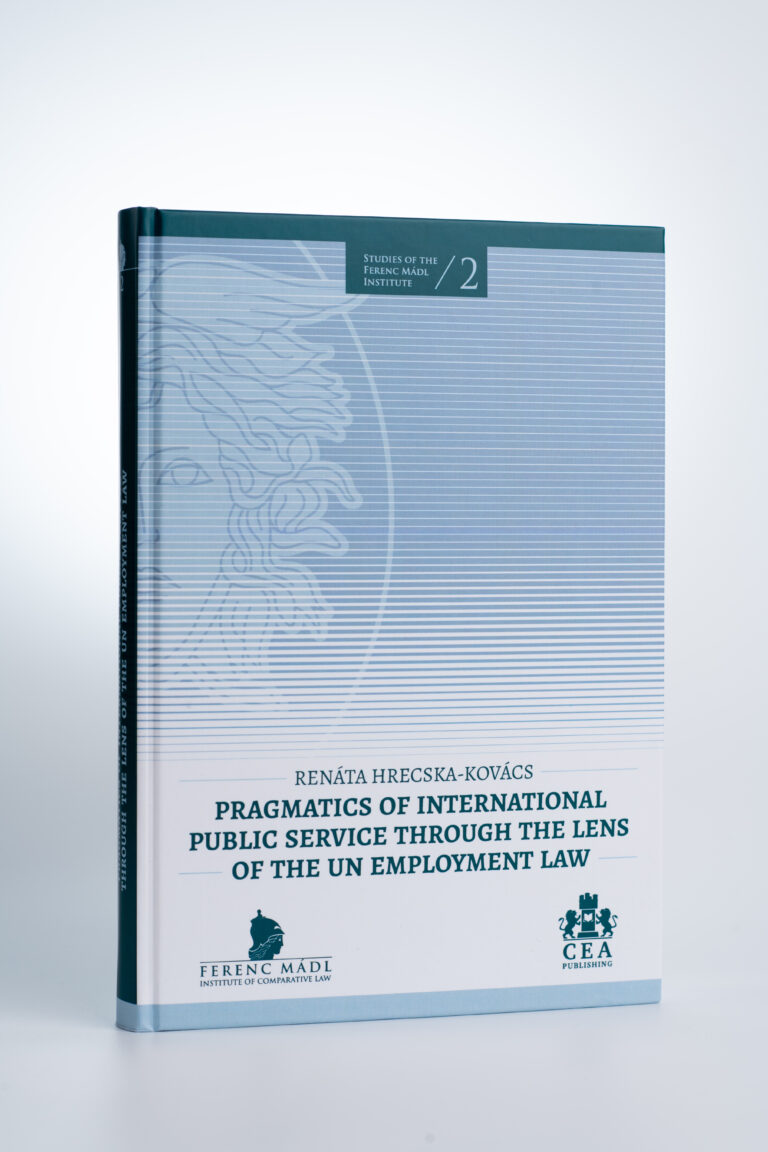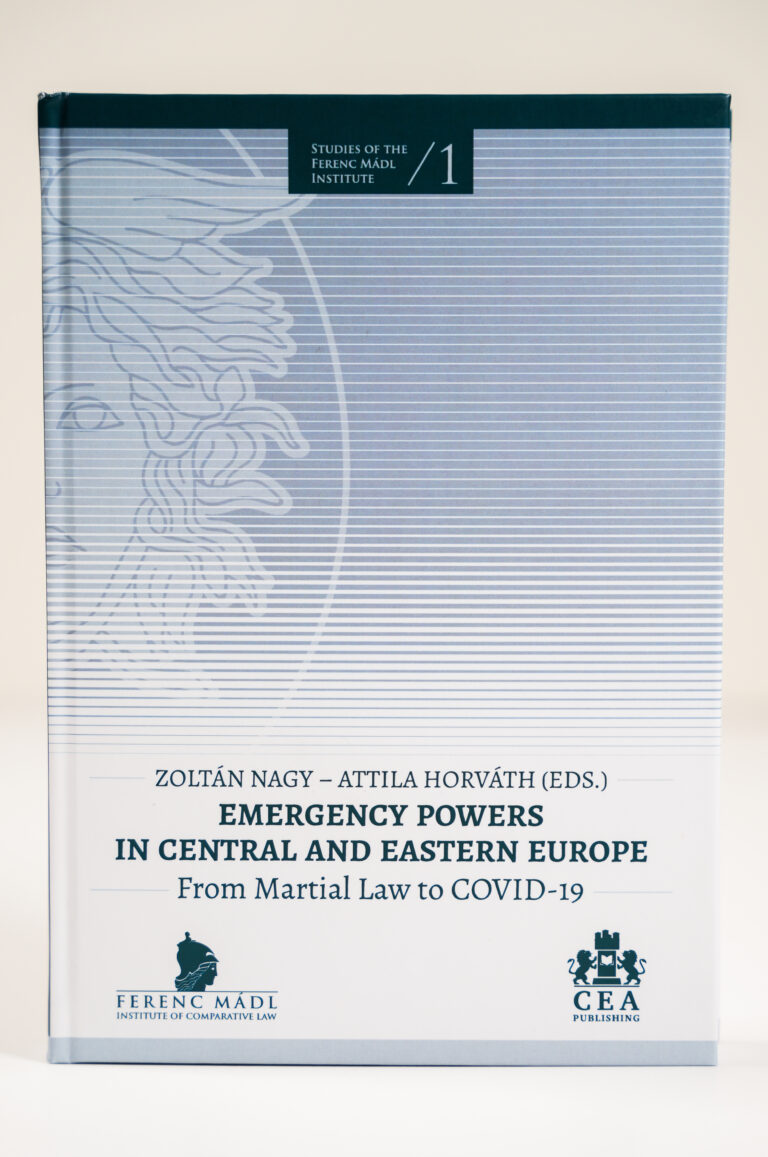The book series Studies of the Ferenc Mádl Institute seeks to publish the most significant and intriguing results of the researches conducted by colleagues of the Ferenc Mádl Institute of Comparative Law in English. The primary goal of the series is to authentically present and address legal issues which arise related to the Central and Eastern European region, taking into account the particular legal traditions and culture of the countries therein. Therefore this series is a good platform to cooperate with Central European Academy. The series also aims to provide insights and detailed analyses of certain legal topics regarding the countries outside the Central and Eastern European region. Furthermore its purpose to encompass titles which are monographic studies of the researchers of Ferenc Mádl Institute of Comparative Law.
The books published in the series are written for both academics and legal practitioners who are interested in contemporary legal problems related to Central and Eastern European countries.
Pragmatics of International Public Service Through the Lens of the UN Employment Law
Renáta Hrecska-Kovács
2023
With the present research the author aims to show how the specific employment relations of international organisations relate to the ethos of public service in the global sense, to the structural models and organisational cultural foundations that have emerged. To this end, it compares the United Nations Staff Regulations, related lower-level internal legal sources and the jurisprudence of the organisation's administrative tribunal with the specific characteristics of the main national civil service models.

Emergency Powers in Central and Eastern Europe
Zoltán Nagy and Attila Horváth
2022
The global crisis triggered by COVID-19 shed light on the exceptional situations in which governments may need to be empowered to take actions that they would not normally be permitted, in order to maintain or restore the integrity of the state and public safety and protect their citizens. Emergency powers are often regarded as a neglected field of constitutional law since most European countries rarely have to face crises or threats that cannot be managed under normal operating conditions.




